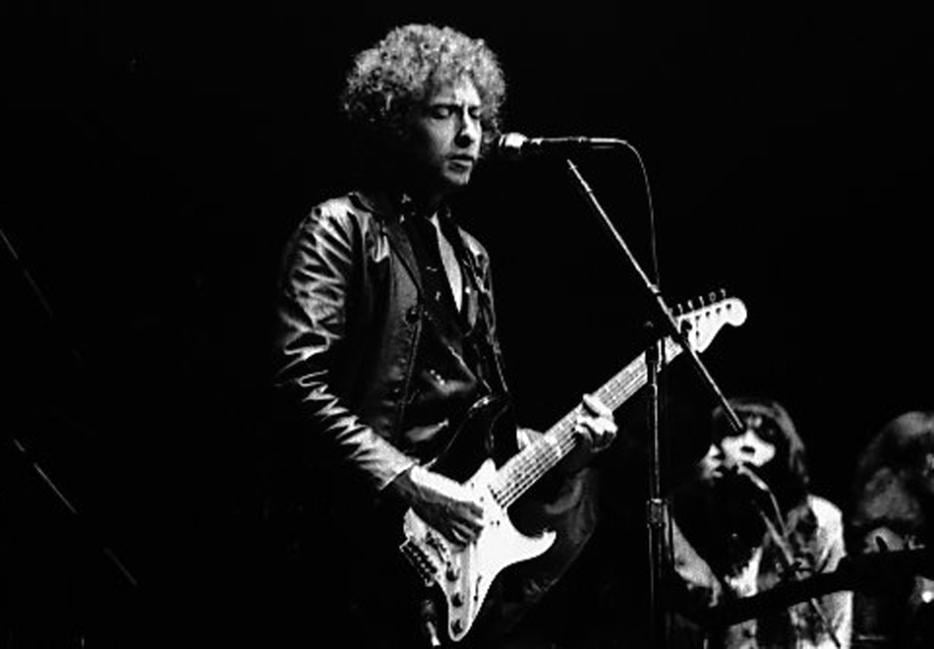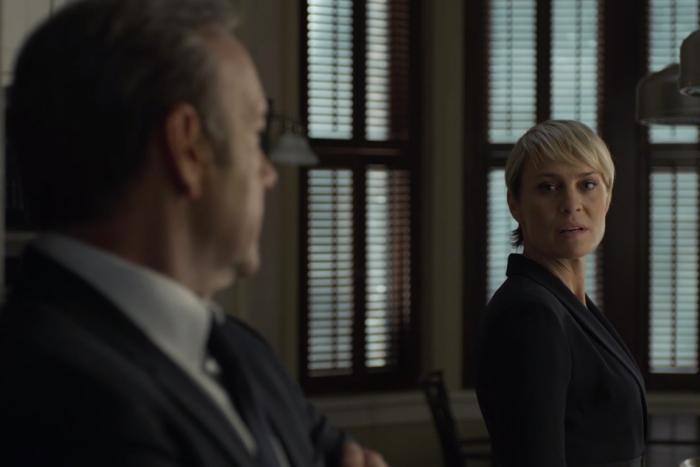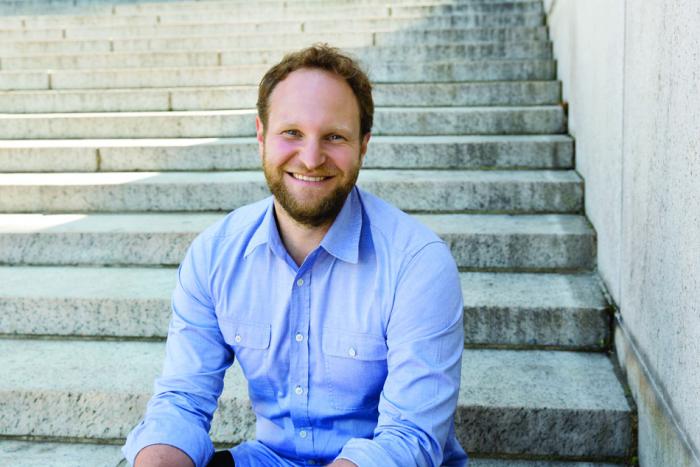If there had been any doubt about The Beatles’ place in the pantheon—that a too-large portion of the population considers them the greatest band ever—it was dispelled Sunday night. Facebook pages and Twitter feeds became real-time paeans to the televised 50th anniversary celebration of the band’s first Ed Sullivan broadcast, during which artists from several succeeding generations paid obeisance to those four men to whose page in cultural history they can only aspire to be footnotes.
There is, of course, no such thing as the greatest band ever. But to get a glimpse of why so many people think there is, and that The Beatles are it, or that they at least occupy a similarly lofty place alongside other musicians from the same decade or so—a Rushmore on which there’s no more room to carve—let’s take a look at Tom Junod’s latest, in the February issue of Esquire: “Seven Questions for Bob Dylan.” Lord.
Now, Junod’s no slouch. As his vestigial but still, you know, extant Wikipedia page will tell you, he’s “published some of the most celebrated pieces in American magazine writing,” including some you’ve probably even heard of. As a reporter and feature writer, he often does good work (even if he is responsible for the worst celebrity profile ever written). Oeuvre and accolades aside, though, the guy’s pretty significantly flawed. By which, of course, I mean, he was born in 1958.
I know, I know, it’s not his fault. And for the most part, it doesn’t damage his writing much. Usually. The premise of this Dylan profile, though, is that there is a mystery at the heart, the very foundation of the man, one that hasn’t been pierced by decades of concerts or interviews, or 35 often confessional albums, or the autobiography, or the film starring seven people playing this more-than-a-man. The structure of the piece, and even some of its content, plays at being playful. “How do you like your eggs, Bob Dylan, How do you like your eggs? You’re walking on broken legs, Bob Dylan, But you still make us beg, Bob Dylan. So how do you like your eggs?” (The question is answered, as are several more in the same vein, in a marginalian “Next question” attributed to Mr. Dylan’s reps.)
But let’s be charitable: the first paragraph might be ironic?
You can’t look at him. If you work at one of the arenas where he plays, you’re not allowed to look at him when he makes his way from the bus to the stage. If you play at one of the arenas where he plays—if, like Wilco’s Jeff Tweedy, you’re a fellow musician, sharing a bill—then you have a decision to make, occasioned by the privilege and problem of proximity. You’ll be standing around and suddenly there he’ll be, and you have to figure out if you’re allowed—if you allow yourself—to behold Bob Dylan.
… might be. But isn’t. The veil’s never dropped, nor is the conceit behind this absurd (and absurdly straight) prose: that Bob Dylan is essentially Pythian, occupying a space between us and the infinite meaning, a window to something we can’t see but for the glimpses he gives us. This man is unknowable, not because he doesn’t want to be known, but because he can’t be.
My first through fourth responses were, more or less, What the hell? Then I realized what the hell: Boomers. That’s the hell.
Those of us lucky enough to have been born before about 1943 and after 1965 or so are well aware that people like Junod have lived their lives stuck irretrievably up their own asses. Yes, they’ve gone through all the usual life stages and experienced what people have always experienced at similar ages: generation gaps, political awakening, hearing songs that seem to know you better than you know yourself, being slutty, growing older but still feeling young, political re-ensleepment, growing even older and realizing you don’t feel like your grandparents looked. All utterly common. But for Boomers, it’s like when one of Gary Larson’s Far Side gorillas says to the other, “You know, Sid, I really like bananas…. I mean, I know that’s not profound or nothin’ … Heck! We ALL do… But for me, I think it goes beyond that.”
The problem is that there are so many of them—an entire generation that, through sheer force of numbers and will, has realigned our culture’s natural evolution—and they refuse to shut up, partly because we continue to listen to them. Bing Crosby and Frank Sinatra, Neil Diamond and Elton John—these guys may have been good, even very good, but they weren’t important. Before the great cultural cleaving, each generation had its songs to hold dear, ones that would always mean a little more to them, things they could play at their 50th anniversaries and grow misty over. Now, we’ve been so thoroughly hammered by Rolling Stone and Creem and Woodstock and Woodstock and The Big Chill and Almost Famous and Esquire (edited by David Granger, born 1956) that we have come to believe it. “Stairway to Heaven” was the last song played at high school dances decades after any properly self-involved generation would have abandoned it. Boomers are the generational equivalent of Americans: enraptured by their own mythology, and uniquely capable of foisting it upon everyone else.
To wit: Jeff Tweedy was born in 1967. He was 18 in 1985. His heroes should be The Stray Cats, maybe Howard Jones, possibly Hüsker Dü. On some level, they might be. But listen to him, talking to Junod:
“‘The show was about to start for Dylan, and he came through with his dressed-to-the-nines gang. He saw me, and I figured I was just supposed to avert my eyes, because I didn’t think I was supposed to be where I was, standing in the way.’
Tweedy was about to stare at the ground when he heard Dylan say, ‘Hey, Jeff, how’s it going, man?’
“That’s all he said and all he had to say. ‘It was the biggest thrill of my life,’ Tweedy says. ‘I was like, I hope people saw that—that it was real.’”
I understand hero worship. People spoke in the same way about Elvis, about Springsteen; now, Beyoncé and Justin Timberlake probably get it, too. But you usually hear this from generationally appropriate mouths. Not so with the Stones, or The Beatles, or Neil Young, or certainly Dylan. These are the transcendent, the universally important—they moved a generation, changed the world. U2’s fine, but they’re no Rolling Stones. And the Stones can’t match The Beatles. And, as is also made clear in Junod’s piece, even McCartney falls short of Dylan.
When a writer needs a way to describe a political volte face, the analogy is Dylan going electric. When a band matures, it’s like Revolver. And when a group of songwriters born mostly in the ‘80s want to describe self-assured physical presence, they know everyone will know what they’re talking about if they talk about Jagger’s moves. The pantheon is packed. Maybe there’s room for Springsteen, but every generation’s mainstream since has had to admit to itself and its elders that even though they may like Nirvana, or Dire Straits, or Billy Joel, they’re not of the golden age. Prince, Elvis Costello, Melissa Etheridge, Lou Reed, Kate Bush, Iggy Pop, Madonna—depending on your taste, if you were born any time in the last 40 years, you’ve probably become used to an instinctive subordination of these greats to those other ones. You might even think it’s natural—they’ve been around longer, had more time for history to weed out the pretenders. But our predecessors didn’t think that way. Caruso got the heave when Crosby showed up, Crosby got thrown out for Sinatra, Sinatra for Elvis, and Elvis for the folks we’re talking about here. ‘Twas ever thus. Until we got musically, culturally constipated.
In an interview Dylan did a few years ago, when the subject of the ‘60s came up, he laughed. “I own the ‘60s,” he said. “You can have ‘em.” But he still seems to avoid swallowing it all whole. Witness the straight-faced references to his “transfiguration“ in mystical proximity to the death of a Hell’s Angel named Bobby Zimmerman in Mikal Gilmore’s 2012 interview. But in the very same interview, he also implies he has some distance from it, some awareness of the lunacy of his place in our culture:
“Why is it that when people talk about me they have to go crazy? What the fuck is the matter with them? Sure, I had a motorcycle accident. Sure, I played with the Band. Yeah, I made a record called John Wesley Harding. And sure, I sounded different. So fucking what? They want to know what can’t be known. They are searching—they are seekers. Like in the Pete Townshend song where he’s trying to find his way to 50 million fables. For what? Why are they doing this? They don’t really know. It’s sad. It really is. May the Lord have mercy on them. They are lost souls. They really don’t know. It’s sad—it really is. It’s sad for me, and it’s sad for them.”
I’m part of the generation that immediately followed the Boomers, so maybe I feel the bloat that came before me more keenly than some others. But I don’t think it’s any less true for people born in the ‘80s and ‘90s. When I see the role Dylan and his cohort continue to play in our culture, and our tastes, I begin to feel like one of those twins that gets the life sucked out of it by the bigger one. There are a few ways this can happen, but one results in something called a fetus papyraceous, a paper-thin husk, robbed of its very guts by the thing next door. That’s us.
So: sad for Dylan, sad for his fans. Sadder for the rest of us, though, who try to live in a musical, cultural world that is not boxed in on every side by the effulgence of a generation that cannot see past its own sense of exceptionalism.
Fuckin’ Boomers.






